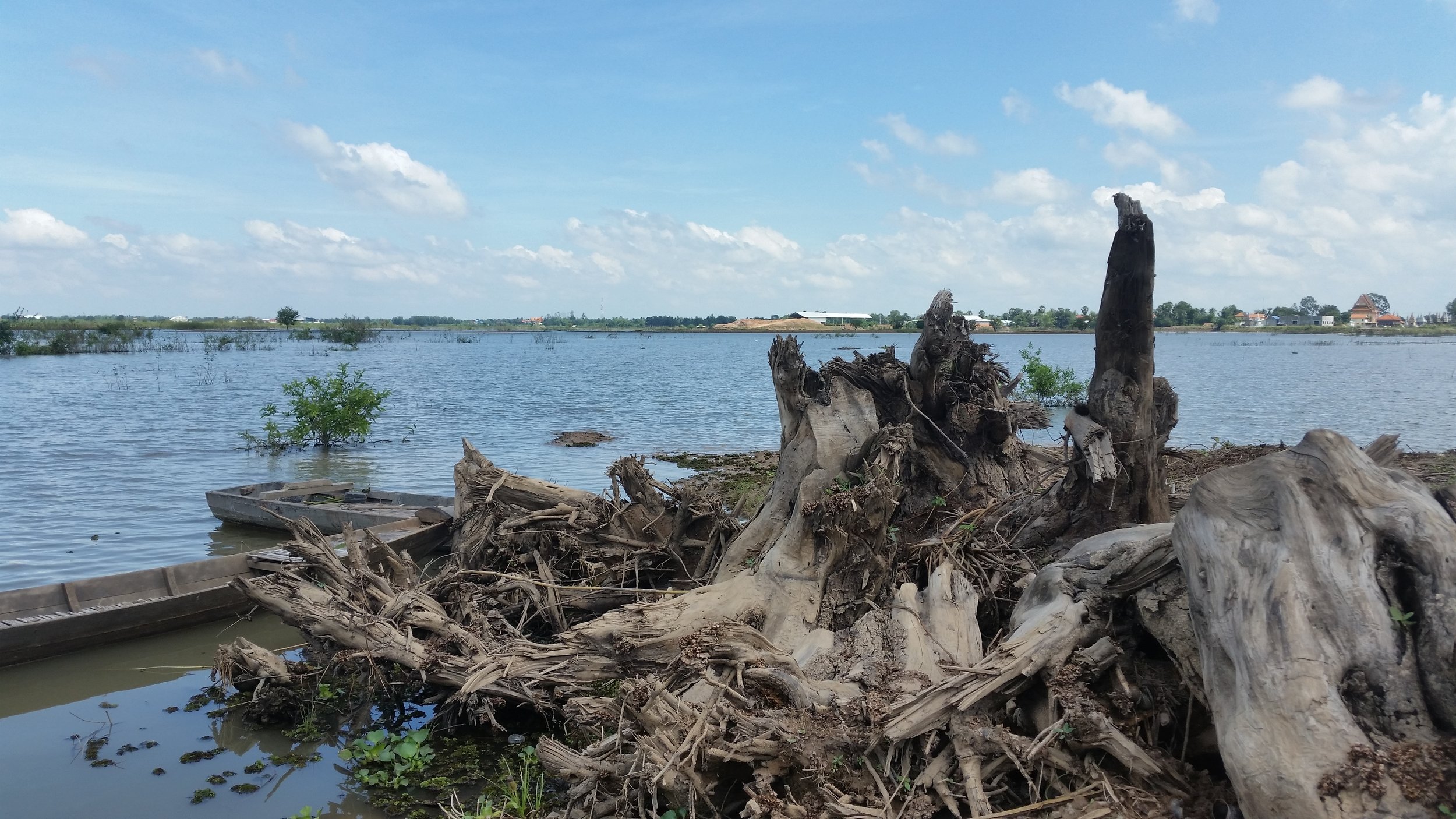A view over flooded rice fields in Prek Anchanh, Kandal Province, Cambodia. Hundreds of hectares of land in the area have been purchased and excavated by local brick factories for use as clay. (Photo by Laurie Parsons, 2017)
In 2018, the Association Southeast Asian Studies annual conference is being organised on the theme of 'Southeast Asia Meets Global Challenges'. Blood Bricks team member Laurie Parsons is organising sessions on 'Beyond Water Terror'. Call for paper information can be found here:
As the likelihood of conflicts over water increases, global scholarship is increasingly attentive to the politics of this vital resource. Parts of the world are growing drier in the face of climate change and population growth, leading the threat of terror and war to become heightened in those areas where states compete most strongly for scarce resources. Elsewhere, more than three billion people are threatened by catastrophic flooding with the potential to fuel existing armed conflicts. Indeed, so seriously are world leaders taking the issue, that water crises were ranked as one of the five greatest threats facing the world at the 2018 World Economic Forum.
Yet this narrative of international conflict masks a more pernicious reality. Currently, two thirds of the global population lack adequate water supplies at least one month per year and half a billion face severe water scarcity all year round. At the same time, others face an opposite threat, as changing rainfall patterns lead inland flooding to become more intense and less predictable, leading to shifting livelihoods, migration and poverty.
The struggles that arise show that water conflict is not confined to the scale of nations, but acts also as an everyday axis of inequality, intertwined in social and economic systems. As Southeast Asian nations face water growing water shortages, this ticking time bomb is driving ever more people into precarious labour, bondage, and modern slavery across the region. This panel seeks to explore this nexus, exploring how the everyday politics of water are becoming embedded in the life and labour of the region.
Please email Laurie.Parsons@rhul.ac.uk with your title and abstract (max 250 words). Your name, institution & email address should also be included. The deadline is 4 May 2018.
